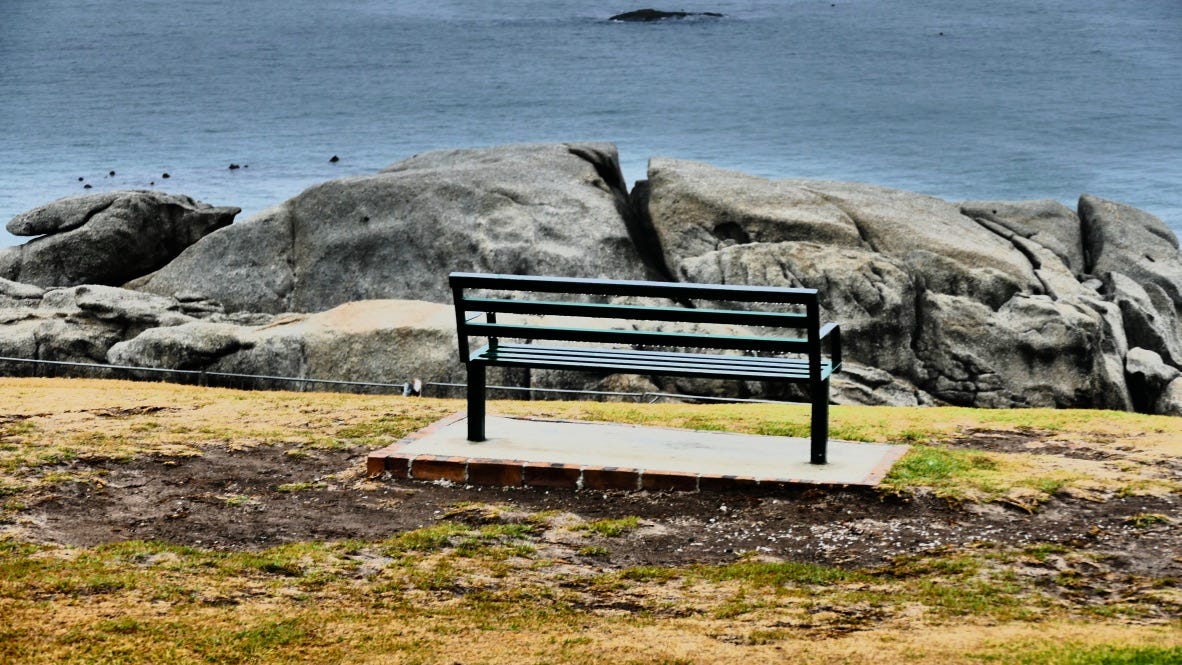There are lots of things that Christians believe that are not in the Bible. At all.
What’s the point of being a “Bible-believing Christian” if you believe a bunch of stuff that isn’t even in the Bible? And even worse, why would you believe ideas that go against what God’s Word teaches us?!
If the ideas listed below pertain to you…
If God really wanted us to “Achieve our Dreams” and “Fulfill our Destiny,” wouldn’t the Bible clearly tell us that? Wouldn’t there be verses in the New Testament where we (the church) would be instructed to “Dream Big” or “Get out of your comfort zone” or “Follow the dream in your heart” or something like that? Did Jesus die on the cross to pay the penalty for our sins, or did He die on the cross so our dreams can come true?
If we were supposed to have an “Encounter with God” and experience His “Presence” wouldn’t the Bible tell us that? Wouldn’t there be verses in the New Testament where we (the church) would be instructed to “Encounter God” and “Soak in His Presence?” Wouldn’t there be lots of information about how to have these experiences? Instead, there is only instruction about having correct doctrine and living according to that doctrine.

If we are supposed to listen to a guy talk about “life lessons,” “relationship skills,” and “practical advice for successful living” at a church worship service, wouldn’t there be Bible verses in the New Testament where we (the church) are taught that? How is that even a “worship service?” Is a motivational speech really the same thing as hearing from God’s Word?

If we (the church) were supposed to “follow the vision” that our “vision-casting” pastor gives us, wouldn’t there be a bunch of Bible verses telling us about that? Wouldn’t there be at least one Bible verse about this??

If we are supposed to give 10% of our income to our church because that is how we prove our faith to God, so that He will reward us with a great increase, why aren’t there any Bible verses in the New Testament where we (the church) are taught this guarantee for prosperity? Why does the New Testament say that our lives on earth will be difficult if we’ve been given this “tithe your way to wealth” plan? Why didn’t Jesus or any of the Apostles teach, and then demonstrate, this principle for financial prosperity?
If unbelievers just need to hear how God is “crazy about them” because they’re “so awesome” in order to become Christians, wouldn’t the Bible clearly tell us that? Why doesn’t the Bible mention our deep need for self-esteem? Is the Gospel message really about how great we are, and that we just need to “know our true identity?” If we just need to realize how very special we are, why didn’t Jesus give us a pep talk instead of dying on the cross?

(Huh??)
If we Christians can speak things into existence, using the power of our words, why don’t we just do it? Why do we have so many “experts” who must go into elaborate detail to explain it? Why are there 90 million books, seminars and sermons that teach this-shouldn’t they just “speak it into existence?” When did Christians stop noticing that this is actually witchcraft? Does the phrase “casting spells” ring a bell? Furthermore, if there is such a thing as the “Law of Attraction,” why isn’t it anywhere in the Bible? Why do Christians keep talking about this supposed “law” even though it’s a totally non-Christian idea? Is Oprah a new Apostle or something??

If God really wanted to have an “intimate love relationship” with us, wouldn’t His Word say so? Furthermore, if God is longing for this “intimate love relationship” why are we constantly failing at it? Why is God constantly failing at it? Doesn’t an “intimate love relationship” between God and a man sound kinda weird and creepy (not to mention between God and a married woman).
If God is passionate about having an intimate love relationship with us, why doesn’t He answer our prayers the way we want Him to? And if we’re supposed to use the analogy of a marriage, what kind of spouse is constantly withholding stuff in order to establish a close, intimate relationship? Furthermore, if He wants us to totally depend on Him for every need so He can show us He’s really there, why doesn’t He just do it? Why all the confusion?

If we are supposed to be in a constant state of hunger as we say “more Lord, more...” wouldn’t the Bible tell us that? Wouldn’t there be clear Bible verses teaching us to continually ask God for “more?” Why are there no Bible verses telling us to “always be desperate and hungry?”
If God needs to use big, emotional revivals to accomplish His will on earth wouldn’t He have told us to “fill stadiums” in the Bible? Why does the Bible (specifically, the New Testament) describe the establishment of the Church if gigantic revival meetings are so important?

If the Bible is the totally sufficient Word of God why do we need so many new teachings? Why do so many people run towards the latest new “word from God?” Why is everybody and his brother writing books that make outlandish promises that go against the Bible?
If the Church is in desperate need of “new revelations” (for various reasons: to understand the end times, to have “Apostolic Alignment,” to attain the secrets of intimacy with God, etc.), doesn’t that prove the insufficiency of the Bible? Is it any wonder that so many Christians are not at peace: they believe there’s always something new and better around the corner that they better not miss… followed by something new and better that’s right around the next corner that they better not miss… (And none of this is from God!)

Here are some more articles that might be of interest:








